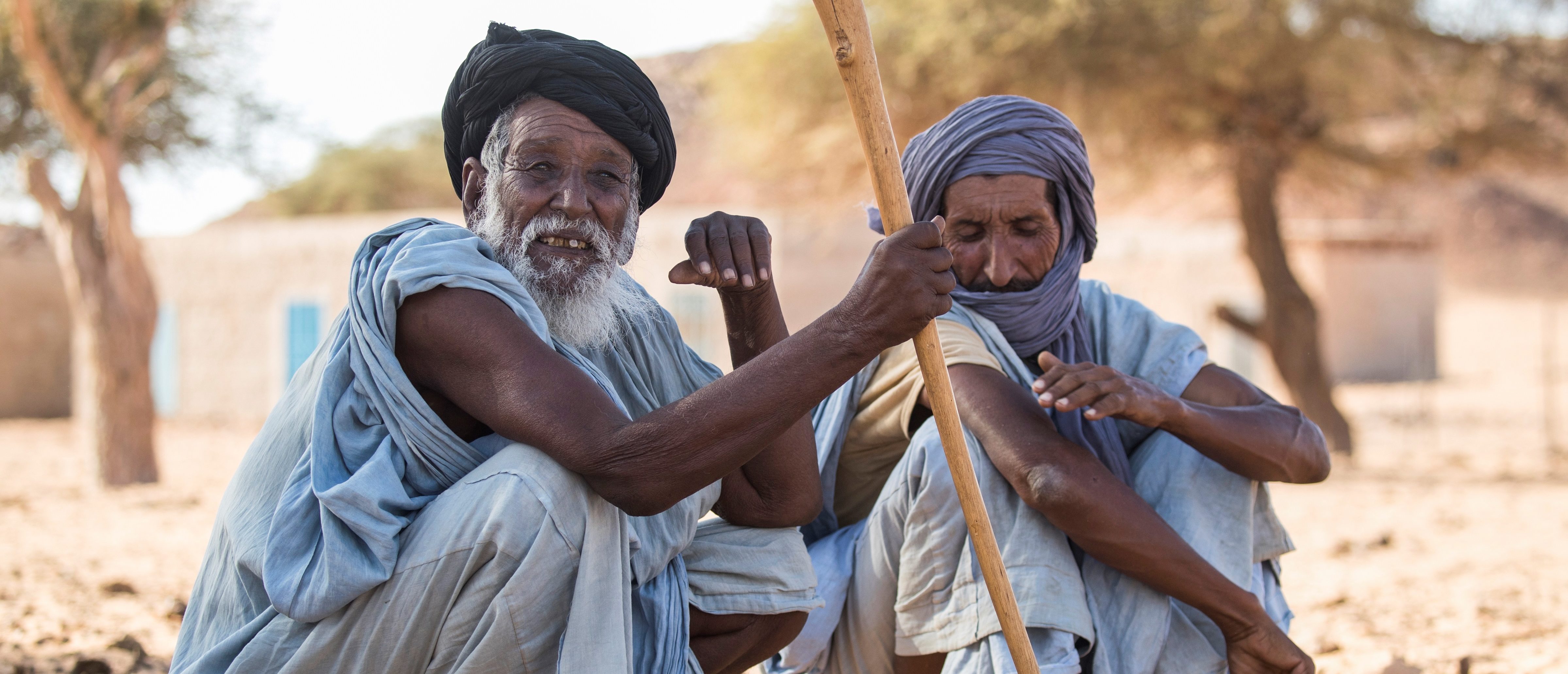The Islamic Republic of Mauritania, located in northwest Africa, is one of the only places in the world where chattel slavery, the system of being born into forced labor as property of another person, is still practiced.
Mauritania’s relationship with slavery landed the country in trouble with the U.S. when President Donald Trump announced in November 2018 that he was revoking the country’s preferential tariff benefits under the African Growth and Opportunity Act (AGOA).
Despite the Trump administration’s decision to penalize Mauritania economically, the situation has only marginally improved. The Mauritanian government has taken steps to prosecute slaveholders, but continues to crack down on anti-slavery and human rights groups.

Men sit on the ground in Ouad Initi, eastern Mauritania (Thomas Samson/AFP via Getty Images)
While the total number of enslaved people in Mauritania is unclear, it is estimated that 10-20% of the country’s 4.6 million people are enslaved in some form, according to a CNN report. Enslaved populations typically belong to the Haratine and Afro-Mauritanian ethnic groups. Despite anti-slavery laws dating back to 1981, there is little enforcement, according to the Guardian.
In his letter to congressional leaders, the president cited the Mauritania’s “insufficient progress toward combating forced labor, specifically, the scourge of hereditary slavery.” As part of the agreement, Mauritania had enjoyed a debt relief package and greater private investment, boosting its sluggish economy, according to an AGOA report.
One of the primary obstacles to anti-slavery reforms is its authoritarian government, which has been controlled by military elements since a 2009 coup, according to a Congressional Research Service report. The 2019 election of Mohamed Ould Ghazouani, a retired general, led to major demonstrations from pro-democracy and anti-slavery groups.
The government responded by banning demonstrations, cutting access to the internet and detaining opposition figures like prominent anti-slavery activist Biram Dah Abeid. Mauritania’s government and civil society, which is largely represented by the country’s Arab elite, has been criticized by activists for backsliding in its efforts to eliminate slavery, Reuters reported.
WATCH:
Mauritania’s government has previously denied that slavery is widespread in the country. State institutions are also reportedly hesitant to prosecute slavery cases due to the influence of Arab elites in the government, according to the Congressional Research Service. (RELATED: African Migrants Captured By Libyan Gangs Were ‘Cooked Like Kebabs’)
Under a 2015 law, three special courts were created to prosecute slavery-related crimes, but only a handful of cases have been tried since their creation, Human Rights Watch reported. However, the State Department noted in its 2020 Trafficking In Persons report that Mauritania had “made key achievements during the reporting period.”
These achievements included convicting five hereditary slaveholders, coordinating with civil society on anti-trafficking legislation, and working with religious leaders to protect children from trafficking. However, the State Department also stated that government agencies tasked with addressing slavery still “lack the resources, personnel, and political will to prosecute.”
International pressure, including from the Trump administration, has led to marginal improvements in the way Mauritania addresses the persistence of chattel slavery within its borders. At the same time, the country’s progress is limited by Ghazouani’s authoritarian government and the state’s apparent lack of political capital and resources.


